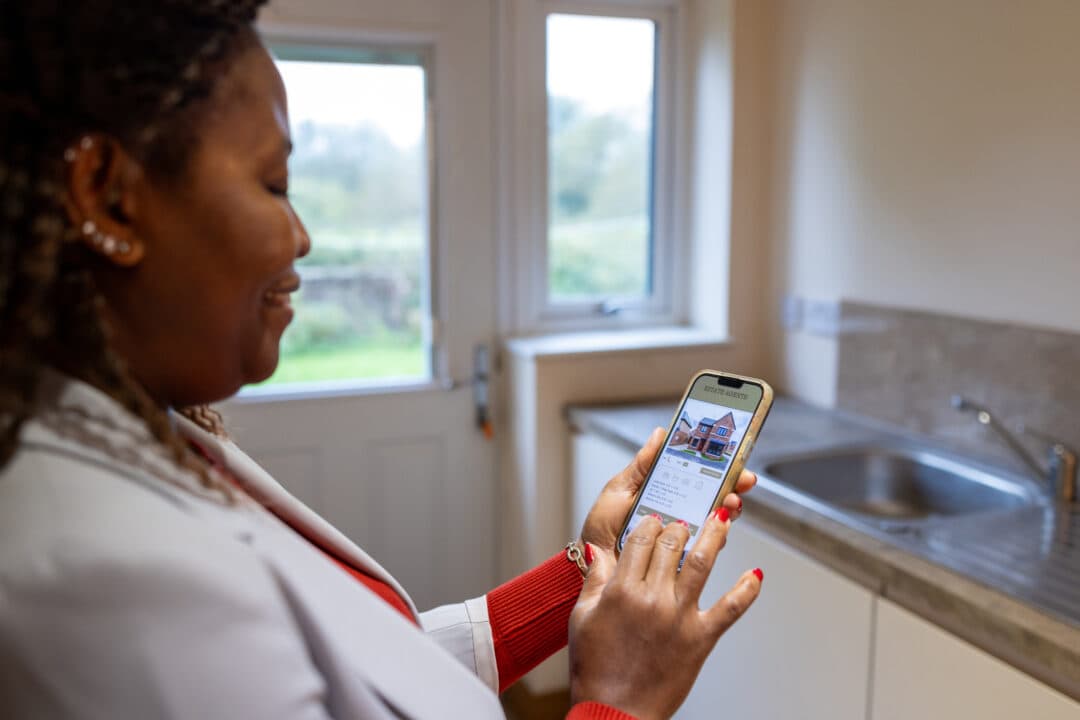Saving for a deposit: is it getting easier?

We’re being told there’s never been a better time to buy a property but what’s the outlook for those still saving for a deposit?
You may have noticed that house prices have continued to rise throughout the pandemic. In fact, four of the property industry’s leading organisations report 12 months of notable uplift, which shows no sign of abating. The Land Registry – the most reliable figures as it uses sold prices – says UK house prices increased 8.5% between December 2019 and December 2020. Rightmove’s March 2021 report puts annual asking price rises at 2.7%, while lenders Nationwide and Halifax both concurred with the higher rate of the Land Registry, publishing annual rises of 6.9% and 5.4%, respectively.
While house prices are good for sellers looking to cash in, they also leave buyers having to find increasingly bigger deposits. Depending on what source you use, the UK’s average house price is in the region of £280,000 and up until recently, a deposit of 10% was needed to secure a mortgage. That has left buyers having to save or find £28,000 to get on or move up the property ladder.
Stashed lockdown savings to the rescue?
It has been reported that those in receipt of their full income during the pandemic have been able to make substantial savings, thanks to reduced outgoings. A study by AA Financial Services discovered 85% of UK adults have spent less during lockdown, with an average monthly saving of £617. The report also revealed that 31% of people with savings accounts had increased their monthly deposits since the start of the Covid-19 crisis.
With working from home set to continue and overseas holiday in doubt for some time, saving a little extra looks to be an ongoing possibility. The effort needed to amass a £28,000 deposit is still considerable, taking more than 3.5 years if people saved £617 a month. This is a statistic that concurs with new research from GoodMove, who says saving for a deposit remains the most complicated part of buying a home – taking 2-5 years, on average, for first-time buyers.
The £617 figure is even harder to achieve for first-timer buyers in rented accommodation, considering HomeLet’s statistics that show the average UK rent is now £984 per month.
Getting over the savings stumbling block
There is, however, an ISA available that helps first-time buyers make their deposit savings go a little further. Called the Lifetime ISA (LISA), this is an account open to anyone aged between 18 and 39 years old. Savers can deposit up to £4,000 each year and the Government tops up the amount with an annual cash bonus of up to £1,000. Purchasing as a couple? Each buyer can open a LISA and enjoy the benefits.
If a first-time buyer wants to withdraw cash from their LISA to put down a property deposit, there is no penalty fee to pay but there are caveats: the LISA must have been opened for at least a year before any money is withdrawn; the purchaser must be a true, qualified first-time buyer, and the property purchase price must not exceed £450,000. More LISA details can be found here.
5% deposits are also back on the table
After months of mortgage lenders requiring a 10% deposit, it’s all change. From April 2021, the Government is guaranteeing a range of 5% deposit mortgages for all borrowers – not just first-time buyers. The deposit amount needed to secure a home loan has, therefore, been slashed in half, with buyers needing to evidence a more manageable average deposit of £14,000. The 5% deposit mortgage scheme will be open to applicants until December 2022, and there will be the option to fix the rate of interest for up to five years.
The Government’s mortgage announcement has encouraged other lenders to re-introduce 5% deposit mortgages that are offered outside of the state’s initiative. Already Accord – an arm of the Yorkshire Building Society – has launched a 95% mortgage, although at least one of the purchasers needs to be a first-time buyer to qualify. It is expected more lenders will follow suit, with increased competition creating competitive rates of mortgage interest.
If you are shopping around for the best property price – perhaps looking at ‘for sale’ houses and flats in different parts of the country – consider sending a Viewber to scout out the home on your behalf. We can provide you with an unbiased report – backed up by photos, videos and a virtual tour – to help you decide if the property provides value for money or whether it’s a false economy. Get in touch today.



